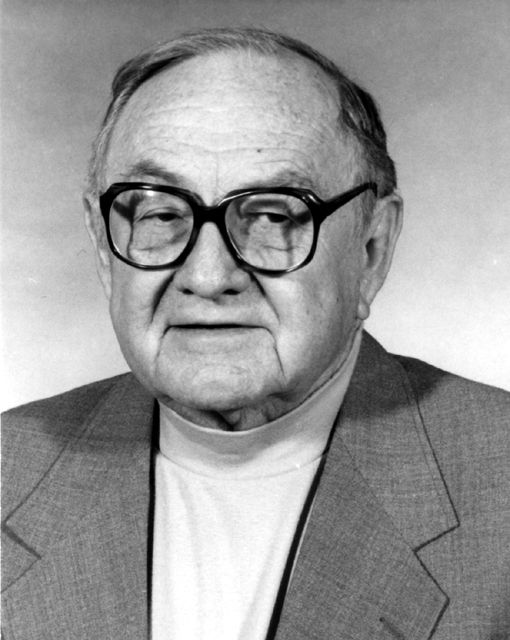Baylor Mourns Death Of Longtime Professor And Researcher

Dr. Merle Alexander
by Judy Long
Funeral services for Dr. W. Merle Alexander, Baylor University professor emeritus of physics and environmental studies, will be held at 2 p.m. Thursday, Oct. 7, at the Episcopal Church of the Holy Spirit, located at 1624 Wooded Acres. Alexander taught at Baylor beginning in 1954 and retired in 1996, with a break from 1959 until 1967 to work at NASA's Goddard Space Flight Center.
Alexander was one of the founding professors of Baylor's Institute of Environmental Studies, which later became the department of environmental studies, where he served as director for more than 20 years. His environmental studies research focused on atmospheric physics and integrated renewable energy, and in 1989, he was named outstanding research professor. He also served as the principal investigator for numerous experiments on America's first earth-orbiting, lunar and interplanetary unmanned spacecraft. He served on the Commission and Dust Panel of the international Committee on Space Research (COSPAR) from 1967 until 1995 and was elected a Fellow in the Texas Academy of Science in 1975.
Dr. Dan McGee, professor of religion and longtime friend, said Alexander achieved excellence both as a research scholar and a classroom teacher. "Merle Alexander was a very gifted, cordial, and caring colleague. He had a brilliant mind and a generous heart. His interests and competences ranged from classical music to astro-physics to environmental problems. Above all, he was a loyal and helpful friend."
Physics professor Truell Hyde, who is also vice provost for research and director of the Center for Astrophysics, Space Physics and Engineering Research, was a graduate student of Alexander's while doing doctoral work at Baylor. "Merle was doing large scale research long before the support infrastructure was in place at Baylor to allow such projects. Even so, he not only got it done, he thrived."
Hyde worked with Alexander during the days when Baylor received CRAFCODEM funding. "It was the Comet Rendezvous Asteroid Flyby (CRAF) Mission, and we had the Cometary Dust Environment Monitor (CODEM) on board. This was the sister mission to the Cassini mission currently in orbit around Saturn.
"Our portion was well over $6.5 million. It was such a large amount that the funding had to be approved by Congress every year. If you look at the list of people awarded funding, it was big name schools from all over the world."
Alexander's daughter, Dr. Sara Alexander, Baylor associate professor of environmental studies and anthropology, said her father touched the lives of many students in profound ways.
"I will always remember my father for the pure ecstasy he felt in his pursuit of new knowledge and understanding, his passion for the classroom, his genuine pleasure in mentoring students and for his humility in the midst of his amazing accomplishments," she said.
In addition to bachelor, masters and doctoral degrees in physics, Alexander also held bachelor and masters degrees in music and was a longtime member of the Waco Symphony Orchestra, where he played the French horn.
In 1987, the Waco Independent School district awarded him for outstanding and continuing service in environmental education. He was honored by Baylor students as the outstanding faculty member in 1990 for his contributions to student life. Alexander is credited with more than 150 publications and invited lectures in the United States and abroad.
Memorial gifts may be made to Baylor's W. Merle and Mary K. Alexander Endowment Scholarship Fund at One Bear Place #7050, Waco, TX 76798-7050. The family invites friends to leave a message or memory in the memorial guestbook at www.wilkirsonhatchbailey.com.